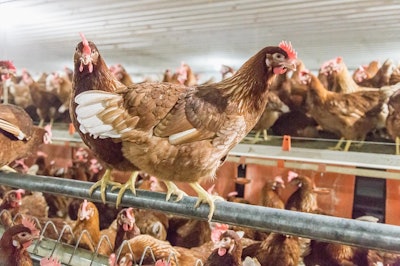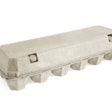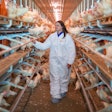
Grocers and restaurant chains have been committing to source 100% cage-free eggs by a certain deadline for approximately the last 10 years. These pledges usually have timelines associated with them, such as planning to be 100% cage free by 2025.
Recently, companies have started to change their animal welfare commitment statements to reflect a later deadline, or even explain that they may never reach 100% cage-free sourcing. Examples of this are Kroger's and Walmart’s recent announcements.
In August 2022, the grocery store chains published revised animal welfare statements that explained they will not be able to supply 100% cage-free eggs by 2025 as they originally committed in 2016, but will continue to offer a variety of conventional and cage-free eggs.
In the amended pledges, each grocer acknowledged the egg industry’s supply issues, increased cost of production and the strain that grocer cage-free pledges have put on producers.
Walmart explained that its cage-free egg sales are lower than the company had hoped and that it has not set a new 100% cage-free deadline at this time. However, it will continue its cage-free transition and plans to invest in lowering the shelf price of cage-free eggs, as well as promoting cage-free eggs by using proper shelf space allocation and placement.
Kroger said most of its customers are still purchasing conventional eggs due to the price of cage-free eggs and that it expects to transition 70% of its egg supply to cage free by 2030. The new goals Kroger plans to reach include: 33% by 2022, 41% by 2024, 54% by 2025 and 61% by 2028, depending on consumer engagement.
I believe the industry will see more grocery store chains revise their cage-free pledges with caveats that state “depending on supply” or “conditional on consumer engagement,” as well as a lot of extended deadlines. This situation combined with state housing legislation going into effect is putting such a significant strain on producers, that customers are starting to acknowledge it.
Taking action before the deadline arrives, like Kroger and Walmart, is probably the best way to handle it instead of waiting for time to run out. I haven’t seen any comments from animal welfare activists on this topic yet, but I’m sure we will soon.


















